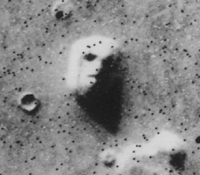Reasons Why the Titanic is Still on My Mind
Rachael Harris
July 29, 2020
0
As some of you will know, this is now the third installment of my unofficial Titanic series, over the course of which I've shared a vast array of facts, stories, conspiracy theories, and even creative writing. Needless to say, the "Unsinkable Ship" has left quite the impression on me, my writing, and my blog. But nevertheless, I feel I have yet to— and may never— exhaust my material, and there are still a number of important Titanic-related things that need to be said. So prefaces aside, here are a few more of my favourite Titanic tidbits. There will almost assuredly be more to come.

1. Robert Ballard
Robert Ballard was an American professor of oceanography at the University of Rhode Island, whose dream was to find the Titanic wreckage. His long-anticipated search for the Titanic, however, wasn't funded until 1985 when the US Navy appointed him to locate and photograph two sunken submarines that were used during the Cold War, and allowed him to use the remainder of the budget to finance his hunt for the Titanic. During his search for the submarines, Ballard discovered a crucial piece of information which went on to essentially lead him straight to the sunken White Star liner. Traditionally, ocean explorers used sonar to search for wrecks,but in locating the submarines, Ballard realized that when a vessel sinks, it leaves a substantial trail of debris created by ocean currents, not unlike a comet's tail. The Titanic's trail of debris was an estimated 2km in length, and in discovering it, Ballard located the shipwreck in under 12 days.
2. The Mummy Theory
An Ancient Egyptian artifact dubbed "the Unlucky Mummy" found its way aboard the Titanic, and according to urban legend, it cursed the liner and caused the demise of its passengers. The identity of the mummy's original owner varies from source to source, but after causing misfortune to its previous holders, it was reportedly donated to the British Museum in 1889, where it allegedly caused misfortune of a similar nature to staff and visitors. It was later bought by Journalist William Stead who, in attempt transport it to New York, hid the mummified body underneath the body of his car out of fear it wouldn't be admitted onto the Titanic due to its mysterious reputation. William Stead apparently revealed the mummy to other passengers the night before the disaster.
3. David Blair
David Blair was a British White Star Line seaman who had been reassigned from his position as a crew member aboard the Titanic, not even a full day before its departure. Due to the last-minuteness of his reassignment, though, he (likely unintentionally) kept a key to a storage locker which is believed to have contained the binoculars that were to be used by the crow's nest lookout. From inaccessible binoculars to a cursed mummy on board, it seems as though the stars aligned for everything that possibly could have gone wrong to do so.
4. Charles Joughin
To me at least, this story is one of the most unlikely and astounding. Chief baker aboard the RMS Titanic, Charles Joughin was one the 705 survivors. As nearly 1500 victims froze to death in the water around him, Joughin casually paddled around for over three hours until a lifeboat found him at dawn. Scientists have estimated that in the -2°C water, hypothermia should have started to set in after 15 minutes, and death no later than 30, yet somehow the baker survived for more than six times that length. His miraculous survival was since credited to the brandy he had consumed beforehand which supposedly heated up his body, although experts have debated the plausibility of that theory.
* * * * *
And that's why the Titanic is still on my mind.








